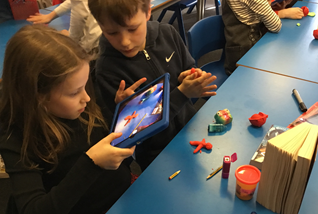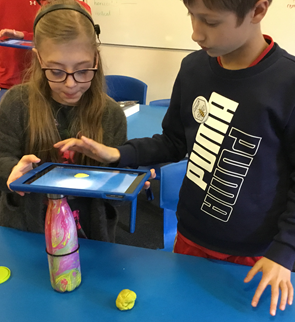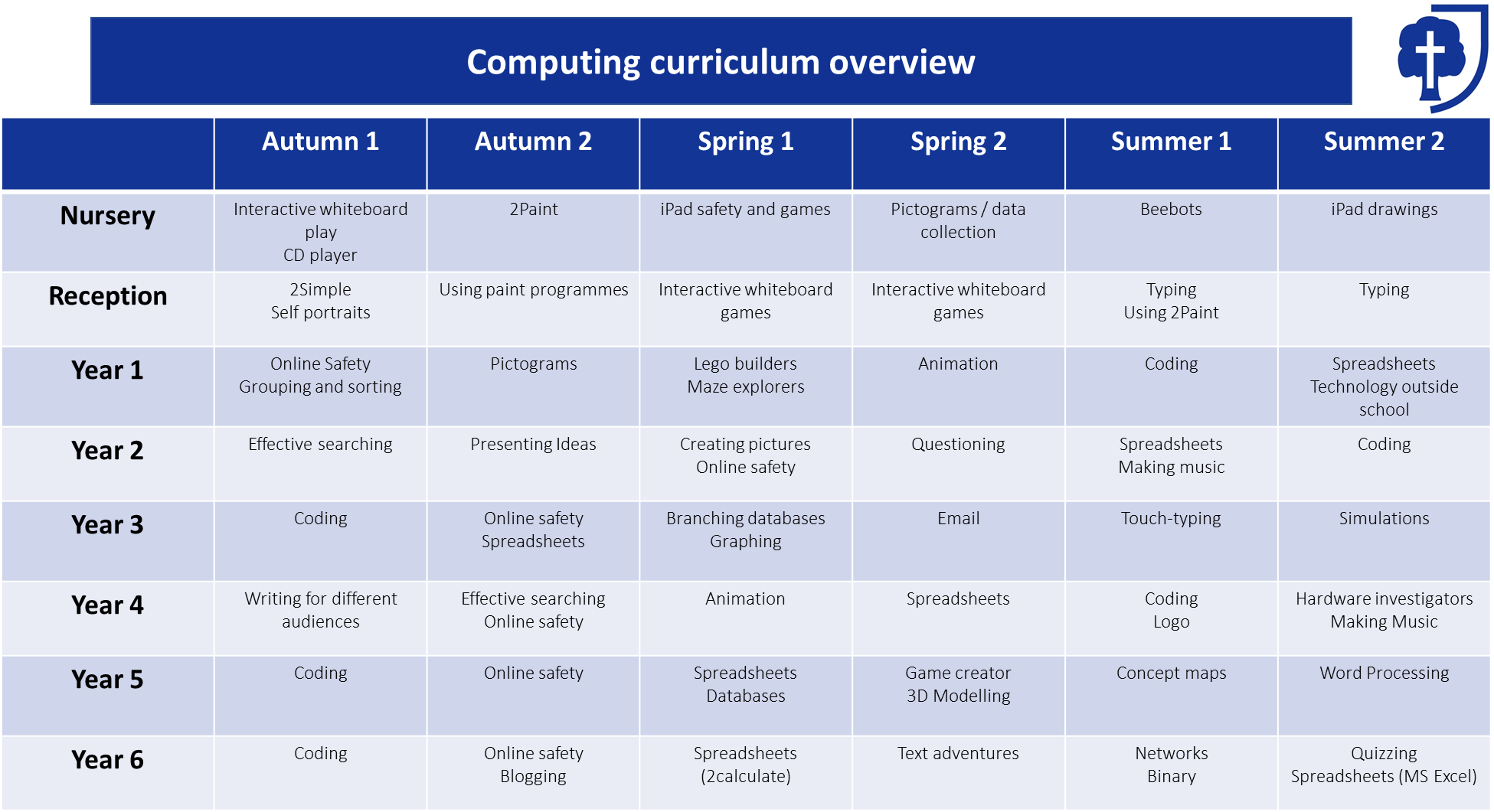Computing
The Computing Curriculum
Introductory statement
“Those who can imagine anything, can create the impossible.” Alan Turing.
Computing Intent Statement
In Computing at Didsbury CE, we provide a high-quality curriculum that equips pupils to use computational thinking and creativity to understand and change the world. Computing is an essential part of the curriculum and has deep links with maths, science and design and technology. Through the study of computing, children will be able to develop a wide range of fundamental skills, knowledge and understanding that will equip them to navigate the digital world safely. We strive to ensure children are literate by providing a wealth of learning opportunities within the computing lessons and across other curriculum subjects.
Consequently, the children will have the opportunity to become increasingly proficient and confident at: 
- Using the internet safely
- Coding
- Using spreadsheets
- Touch typing
- Animation
- Emailing
A curriculum for life for all regardless of background.
We have an ambitious computing curriculum at Didsbury CE which plays a vital role in preparing every child with the knowledge, skills and understanding needed to ensure digital literacy and thriving as 21st century citizens. The knowledge-engaged curriculum provides children with opportunities to become active participants of a digital world; digital understanding will be crucial to being successful in the world of communication. The curriculum content and design improves children’s general knowledge of the digital world and provides first hand experiences using computers, interactive whiteboards and iPads, whatever a child’s social background. Our curriculum also emphasises the need to be safe and secure when online. The school provides a substantial amount of equipment in the form of an ICT suite and a class set of iPads, enabling all children to access the full computing curriculum.
Curriculum end points
The computing curriculum is designed with clear knowledge and skill end points at the end of each unit. We teach a spiral curriculum, revisiting previous units year-on-year, building on children’s prior learning. Key aspects of English such as creating articles and editing and Mathematics such as databases and spreadsheets are contextualised and entwined into the computing curriculum.
Curriculum planning and sequencing 
Children in EYFS are taught Computing through ‘Understanding the World’. Continuous provision is provided for all and children are given opportunities to explore various types of equipment. Often this is child-initiated but on occasion is also completed through adult-led activities.
Children in years 1 to 6 are taught Computing using Purple Mash, a spiral curriculum. Purple Mash provides two routes for completing several of the units- a crash course and a full course. In Key Stage 2, teachers will teach the crash course of the unit if the children’s prior knowledge is not as secure as it should be in their year group. The crash course is used to quickly enhance children’s understanding. Each lesson draws on the children’s prior knowledge to build upon and extend their abilities.
Reflecting the local context
At Didsbury CE, our ethos is Belonging, Believing, Becoming: where children feel a sense of Belonging to the school and community of Didsbury. In Computing, we take a look into our closest city of Manchester, where Alan Turing, the father of modern computing, went to university. Children are taught to be respectful digital citizens, understanding how their digital footprint can impact their lives both now and in the future. The children are taught about what to do if they are uncomfortable with any online behaviour or material they see.
A broad and balanced curriculum
Children study computing for the equivalent of one hour a week in both key stage one and two. We have always been committed to providing a broad and balanced curriculum that is not narrowed in end of key stage years. We passionately believe that the computing curriculum builds upon the skills and knowledge of the core subjects. For example, the computing curriculum gives opportunity for substantial pieces of text to be written, edited and published using various software. The opportunities to research across all subjects are extensive.
High academic ambition
Throughout the computing curriculum at Didsbury CE, children are encouraged to be the best they can be, achieving high academic standards, pushing themselves to deepen their knowledge and skill set. The expectations of children across all year groups is that they should maintain the high standard of that produced in the core subjects. We passionately believe that all children regardless of background can reach those high standards. Pupil premium is used to ensure all children fully access the computing curriculum; the PTA also contributes to the computing curriculum, ensuring up-to-date hardware and software is available to all. Inclusion is paramount at Didsbury CE; children with SEN are supported in various ways to suit their needs in order for every child to receive their full curriculum entitlement. This varies from child to child, often by support and the adaptation of resources often including digital devices. We ensure every child is challenged to fulfil their potential



